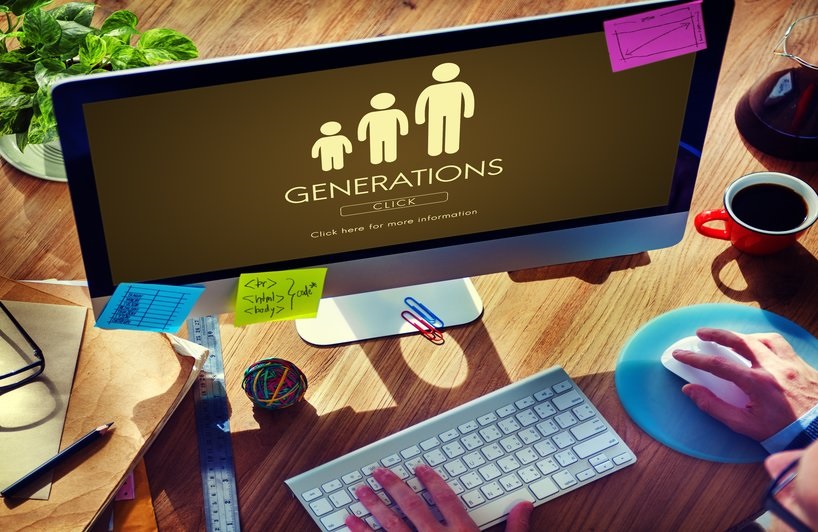In today’s workforce, it’s more common than ever to have a variety of age groups working in the same space. As the retirement age increases and industries change, people of all ages compete for the same positions. It’s critical to remember that trends and stereotypes surrounding different generations are not reflective of every employee and every workplace. However, there are general traits we can learn about and try to understand in order to work well with people outside our own demographic.
Gen Y, aka Millennials
The frequently discussed Millennial generation was born between 1980 and 1997, according to most demographers. They have officially surpassed Generation X as the largest generation in the U.S. workforce, according to a 2015 Pew Research analysis. Despite their controversial reputation, most Millennials care deeply about their work and have a strong desire to prove themselves. This can be difficult to do in today’s ultra-competitive job market. Millennial workers seek a good cultural fit with a company and value social connection within the workplace. They’re more willing to leave a job that isn’t the right match than their predecessors historically have been. Feedback is an important part of the Millennial career path because it keeps a line of communication open between employees and management – this helps employees feel their role at the company is relevant and there is room for them to grow.
Gen X
Generation Xers were born between 1965 and 1980, and tend to be more cautious in the workplace than the generations on either side of them. They are able to adapt to changing work environments and are likely to stay in one place longer than their Millennial counterparts. Gen-Xers are more comfortable with technology than their Baby Boomer co-workers and can often help bridge the gap between the younger and older groups in the office. Work-life balance is important to Gen-X employees, but they don’t put as much emphasis on it when choosing a company to work for as Millennials tend to.
Baby Boomers
Those born between 1946 and 1964 are known as the Baby Boomers. Well known for their work ethics and willingness to prioritize their careers in the work-life balance, Boomers are dedicated employees. They don’t hesitate to speak up when they see room for improvement, and their lengthy careers make them a wealth of knowledge for those new to their industry. Occasionally, Baby Boomers are less comfortable with new technology and the communication styles of younger workers. Mentor programs can be a good way for Boomers to get involved with employees who are at the beginning of their career path.
Diversity in the workplace is always beneficial to the organization as a whole. There’s a great opportunity for learning on both sides of the spectrum – someone who’s great at navigating the latest internal software upgrade can share their knowledge, and someone with a long tenure at the company can offer insight into the way things are run and where there might be room for improvement. With a little bit of effort and patience, employees of all three generations can complement each other and contribute to a productive, fulfilling work environment.
Any thoughts on the challenges and benefits of a multi-generational workforce? Let us know on Facebook or Twitter.
Sources Referenced: https://www.forbes.com/sites/adp/2016/04/11/understanding-baby-boomers-at-work-fast-facts-for-chros/#fb19a03238be
